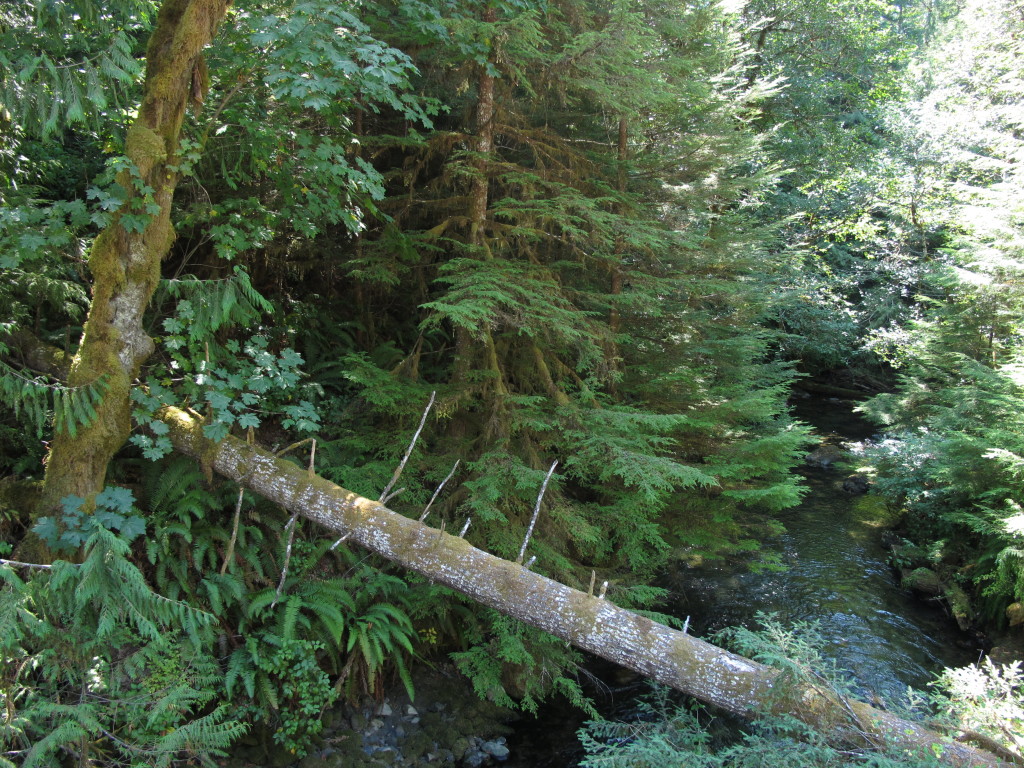
Finding pockets of species diversity in the midst of land pressed into the service of human needs always gives me a particular kind of joy.
While the sight of old-growth forests warms my tree-loving little heart, a walk along a logging road left to its own devices offers a glimpse into how nature reclaims its own. And a meditation on the hubris of progress, but I digress.
Because logging operations in Washington are required to maintain buffer zones along waterways to protect fish runs, riparian habitats often stand in lush contrast to the cut-over areas around them. They also serve as repositories of native plants, and the loveliness of areas like this pocket along the Lyre River on Washington’s Olympic Peninsula is undeniable.
The Lyre connects Lake Crescent with the Strait of Juan de Fuca. Lake Crescent, of course, is home to the historic Lake Crescent Lodge and is a jumping-off point for adventures into Olympic National Park. Just to the north, though, are lands that house working forests of a very different sort.
The Spruce Railroad Trail, which gets its name from the railroad built to haul out logged Sitka spruce during World War I, winds along the northern shore of the lake. It’s a lovely walk in its own right, but since the trail is currently under summer construction on our most recent trip we took a detour through the logging roads that branch off near the eastern trailhead.
Visiting these “working lands” is always a bit jarring, particularly when they’re in such close proximity to the glories of places as beautiful as Lake Crescent and Olympic National Park. It can break your heart or it can remind you that the natural world encompasses more than the pretty places we’ve set apart to preserve.
Be First to Comment